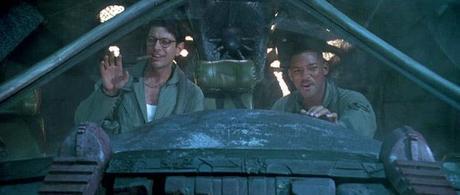
"More than one-third of all movie tickets through the course of a year are sold in the summer, but with the summer Olympics and not that many sequels coming up in the weeks to come Hollywood's worried it won't be selling enough of these [holds up a movie ticket]," is how Chris Connelly started his MTV News summer movie preview segment in 1996. He had no way of knowing 1996 was about to record the highest-grossing summer in Hollywood history, kickstarting an unprecedented run of record-setting summers through the end of decade and into the new century.
I was 13 that summer, and I remember seeing Twister, Mission Impossible and Independence Day in theaters. I laughed just like everyone else when Twister more or less made The Weather Channel the villain in the form of Cary Elwes' corporate-funded meteorologist. It took me a while to forgive Mission Impossible for killing off Emilio Estevez in horrific fashion (not Coach Gordon Bombay! Quack, quack forever). And Independence Day seemed like the biggest movie event of my lifetime, even though many of us were rolling our eyes through large parts of it.
There were, of course, plenty of other movies that summer (remember Dragonheart or The Phantom?). In fact, it was one of the most crowded summers on record to that point. Some of the lessons Hollywood learned that summer endure to this day:
1. Why the Heck Wait Until Memorial Day?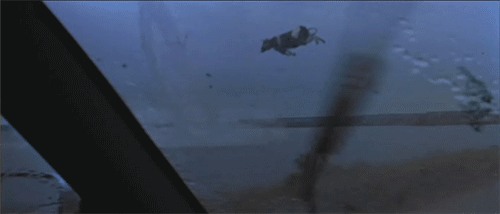
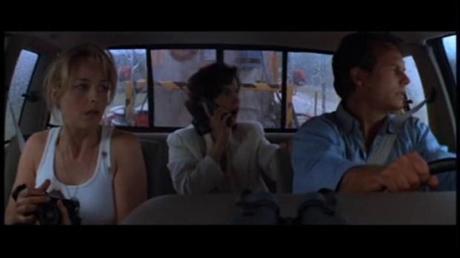 Memorial Day, observed around the country as Decoration Day since the time of the Civil War, didn't actually become a Federal holiday until 1971. Hollywood didn't figure out how to properly monetize it as the ideal starting point for the summer movie season until 1977 (thank you, Star Wars and Smokey and the Bandit, as I wrote about elsewhere), but once that Hollywood flag was planted on Memorial Day it stuck. By 1996, very few major summer blockbusters had ever opened before Memorial Day. In general, the early weeks in May were a dumping ground for teen comedies, cheaply produced horror flicks and random projects the studios didn't believe in.
Memorial Day, observed around the country as Decoration Day since the time of the Civil War, didn't actually become a Federal holiday until 1971. Hollywood didn't figure out how to properly monetize it as the ideal starting point for the summer movie season until 1977 (thank you, Star Wars and Smokey and the Bandit, as I wrote about elsewhere), but once that Hollywood flag was planted on Memorial Day it stuck. By 1996, very few major summer blockbusters had ever opened before Memorial Day. In general, the early weeks in May were a dumping ground for teen comedies, cheaply produced horror flicks and random projects the studios didn't believe in.
However, some people at the studios were starting to wonder if they were leaving money on the table. Why should they continually open so many movies over Memorial Day and watch as at least one of them was inevitably squeezed out, like when Hudson Hawk tanked when released opposite Backdraft and Thelma and Louise over Memorial Day 1991?
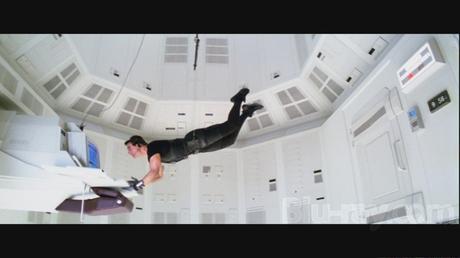 So, when Paramount staked its claim to Memorial Day with Tom Cruise's Mission Impossible Warner Bros. blinked and pushed Twister, its special effects extravaganza from the director of Speed, to May 10th, giving it a 12-day head start on the rest of the summer movies. Warner Bros. had previously experimented with this non-traditional release strategy in 1992 when it escaped Memorial Day competition with Alien 3 by launching Lethal Weapon 3 in early May and ended up out-grossing Alien 3 in the process.
So, when Paramount staked its claim to Memorial Day with Tom Cruise's Mission Impossible Warner Bros. blinked and pushed Twister, its special effects extravaganza from the director of Speed, to May 10th, giving it a 12-day head start on the rest of the summer movies. Warner Bros. had previously experimented with this non-traditional release strategy in 1992 when it escaped Memorial Day competition with Alien 3 by launching Lethal Weapon 3 in early May and ended up out-grossing Alien 3 in the process.
History repeated itself. Mission Impossible was a big hit, to the tune of $180m dom./$457m world, but Twister was bigger, with $241m dom./$494m world.
The yardpost had officially been moved, and the rest of the studios followed WB's lead, with Deep Impact turning into an early-May hit in '98 and The Mummy and Phantom Menace gobbling up dollars well before Memorial Day '99. The Gladiator ('00), The Mummy Returns ('01) and Spider-Man ('02) ensured the first week of May remained the true start of the summer for over a decade until Fast and the Furious, Captain America: Winter Soldier and other recent movies (e.g., The Jungle Book) looked at the calendar and asked, "Hey, why are we ignoring April?"
2. The Earlier You Start the Marketing Campaign The BetterWB was motivated to move Twister to early May to escape Mission Impossible, sure, but they were also running away from the Summer Olympics, which took place in Atlanta, Georgia from July 19th to August 4th. In that sense, 1996 doesn't seem so different from 2016 since we have the Rio Games coming up in August. However, that will just be another round of Olympic Games, no more special than the last (although we're all secretly rooting for all of the handwringing about Rio's lack of preparedness for the games to equate to some juicy real life soap opera).
The Games in '96 were unique, and for more on that I'll now turn to sweet lady Wikipedia:
The International Olympic Committee voted in 1986 to separate the Summer and Winter Games, which had been held in the same year since 1924, and place them in alternating even-numbered years, beginning in 1994. The 1996 Summer Games were the first to be staged in a different year from the Winter Games. Atlanta became the fifth American city to host the Olympic Games and the third to hold a Summer Olympic Games.
So, it was the first time we'd ever had Summer Games without Winter ones as well. It was all going down in our own backyard. And it started in mid-July.
You're damn right Hollywood should have been worried. In fact, Fox wanted to release Independence Day over Memorial Day, preferring to take their chances going up against Tom Cruise in late May rather than risk losing most of their audience to the dang Olympics just two weeks after opening in early July. However, the bidding war over the Independence Day script had grown so feverish that Fox only won the rights when they granted the writer Dean Devlin and director Roland Emmerich control over the marketing campaign. From the get-go, Devlin and Emmerich envisioned a campaign built around the startling imagery of an exploding White House followed by the tagline: "The world ends July 4th."
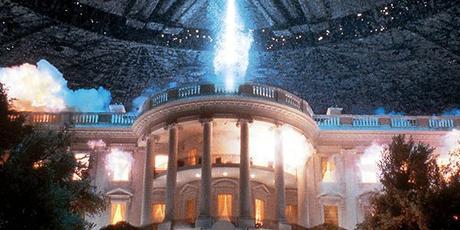 That doesn't have the same ring to it if your movie is coming out in late May. Devlin and Emmerich ultimately won the battle, and ID4 kept its release date. The studio's head of marketing, Tom Sherak, believed they had a potential phenomenon on their hands, but with the Olympics breathing down their neck they were going to have to market the hell out of this movie.
That doesn't have the same ring to it if your movie is coming out in late May. Devlin and Emmerich ultimately won the battle, and ID4 kept its release date. The studio's head of marketing, Tom Sherak, believed they had a potential phenomenon on their hands, but with the Olympics breathing down their neck they were going to have to market the hell out of this movie.
The rest of the studios clearly sensed this was a more hectic summer than usual. The average cost of marketing that year was $20m, up 15% from 1995, and that was likely as much as due to the Olympics as it was to the glut of big budget movies. However, no one could hold a candle to what Sherak did with Independence Day.
For starters, he set a record with a total marketing spend of $24m, and he kicked it off a full 7 months before the film's release, unleashing a teaser trailer in December '95. That's completely normal now. For example, I've lost track of how many times I've seen one of the Suicide Squad trailers over the past year. However, in the mid-90s that still seemed a tad excessive.
Sherak didn't care. He was on a mission to turn ID4 into an event. He hired five black helicopters to fly up and down the California coast baring banners like "No Warning" and "No Negotiations" and "No L.A." He paid $1.3m to run the trailer during the Super Bowl back when that wasn't simply something all major movies did. By June, ID4 fever was so high Bob Dole and Bill Clinton were using the film as a talking point on the campaign trail.
It worked. ID4 became the second highest grossing film of all time to that point. Almost all major movies now employ a full-court press marketing strategy, but no one had quite done it like ID4 before 1996.
3. Spectacle Transcends Language and Culture1993 was the first time Hollywood's total international profits leapfrogged domestic, but 1996 was the first year people seemed to really take notice of this, as covered by DenOfGeek:
"I just saw Independence Day, and the joke out here is they should have called it The Day the Script Stood Still," said the president of special effects studio Digital Domain in 1996. "I hold screenwriters in the highest regard when it comes to the ultimate quality of the movie, but this summer is proving that special effects can drive movies to obscene profitability. You look at them as films and there's not much of a plot line, not much acting, and the direction is mediocre. But the effects are fantastic. Twister and Independence Day aren't about characters. They're big thrill rides."
Like it or not, these thrill rides were internationally successful. According to Box Office Mojo, more than 60 percent of Independence Day 's gross came from overseas. Part of the reason for that success, despite the film's US-centric premise, was that its plot and dialogue were incidental to its imagery. You didn't have to be American to appreciate the sight of buildings exploding or alien ships smashing into the ground.
"Special-effects movies are going to a much wider pool around the world," said Gorky Park director Marting Cruz Smith after seeing ID4. "They have action and spectacle that can appeal to people who don't speak English. That's changing the nature of movies: There will be one kind for the international audience and there will be the smaller films with acting and plot. I suppose we'll feel guilty for liking both kinds."
7 of that summer's top 10 films made more money overseas than at home, and the three that didn't - A Time to Kill, Phenomenon, The Cable Guy - were all mid-budget adult dramas or comedies, the type of films that have almost no place in the summer anymore.
4. You Can Pad Your Box Office Stats By Opening a Film One Night Early I can't remember the last time I heard about a genuine midnight screening of a new movie. Instead, all of the big ones seem to play at 7PM and 10PM (Central Time) the night before their official release, and the industry trades and blogs all dutifully report the early box office results the next morning, kickstarting a non-stop stream of updates throughout the weekend. Whether or not the results from these sneak-preview screenings should even be included in the overall opening weekend total isn't even in question anymore, not really. However, things were very different in 1996 when Fox realized it could rightfully claim a new box office record (suck it, Jurassic Park!).
I can't remember the last time I heard about a genuine midnight screening of a new movie. Instead, all of the big ones seem to play at 7PM and 10PM (Central Time) the night before their official release, and the industry trades and blogs all dutifully report the early box office results the next morning, kickstarting a non-stop stream of updates throughout the weekend. Whether or not the results from these sneak-preview screenings should even be included in the overall opening weekend total isn't even in question anymore, not really. However, things were very different in 1996 when Fox realized it could rightfully claim a new box office record (suck it, Jurassic Park!).
As reported in Tom Shone's Blockbuster: Or Hollywood Learned...:
On the Tuesday before its July 4th opening, Independence Day was sneak-previewed on more than 2,400 screens, playing around the clock on some of them, and causing ticket prices in Los Angeles and New York to jump from $7.50 to $8 which allowed the movie to pass the $100m mark by Monday - a first, beating even Jurassic Park, although rival studios disputed the head start the movie had been given by its previews. Had it reached $100m in six or seven days?
That distinction (and related industry debate) didn't seem to matter, though. By including the preview screenings, ID4 was gifted the marketing hook of claiming supremacy over Jurassic Park. Such sneaky tactics have contributed to the on-going dick-measuring contest that often characterizes studio reports of box office results.
5. Hollywood Stars Might Not Be Worth the Exorbitant, Incentive-Laden Contracts They Demand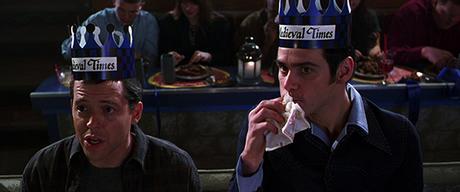 Billy Ray, a screenwriter ( Captain Phillips) and WGA board member, was recently told by a former studio head that one of the industry's biggest mistakes was not better investing its home video windfall profits. As explained by Ray on the Scriptnotes podcast, this former big time mover and shaker in the biz feels the studios foolishly believed the booming home video market would never bust. So, they collectively indulged the ever-rising salary demands of actors, and made too many bad movies under the assumption that attaching a star to a bad script would cause everything to even out in the end. They should have used the excess money to make better movies; instead, they often simply ensured that Demi Moore had enough private jets to cover her sprawling entourage.
Billy Ray, a screenwriter ( Captain Phillips) and WGA board member, was recently told by a former studio head that one of the industry's biggest mistakes was not better investing its home video windfall profits. As explained by Ray on the Scriptnotes podcast, this former big time mover and shaker in the biz feels the studios foolishly believed the booming home video market would never bust. So, they collectively indulged the ever-rising salary demands of actors, and made too many bad movies under the assumption that attaching a star to a bad script would cause everything to even out in the end. They should have used the excess money to make better movies; instead, they often simply ensured that Demi Moore had enough private jets to cover her sprawling entourage.
Of course an old studio chief would say that. To them, all actors are overpaid, but the 90s redefined insanity in that area. Jim Carrey was paid $20m to star in a black comedy with limited commercial appeal, but after Ace Ventura, Mask and Dumb and Dumber that was the price of doing business with the former star of Once Bitten. In 1996, that system still paid off beautifully on occasion ( The Nutty Professor, The Rock, Mission Impossible, a lthough Cruise out-negotiated Paramount to the point that they eventually had to cut ties with him), but other times it either blew up in their faces ( Cable Guy, Striptease, Tin Cup) or delivered results well below career norms (Schwarzenegger's Eraser, Robin Williams' Jack, Keanu Reeve's Chain Reaction). It looks a lot better on your balance sheet when you can pay the ID4 and Twister people very little, and promote the hell out of the special effects and out-gross the industry's big star-driven vehicles.
Here's a sampling of '96 salaries and grosses:
Of course, Will Smith became a star off of ID4, and within 4 shorts years he was demanding $20m per movie. So, it's not like 1996 ended the star system. The DVD market ensured that would keep going well into the new century, but ID4 and Twister introduced the idea that maybe movies of a certain scale don't actually need high-priced stars.
Cut to 2016. The movie star is dead. Long live the age of the IP.
In many ways, the summer of '96 seems completely foreign to our modern reality. Where are all the sequels (just Escape from L.A., A Very Brady Sequel and Crow: City of Angels)? Where are the comic book movies (other than The Phantom)? How is it that the families of '96 went the whole summer with only one major animated film ( The Hunchback of Notre Dame, which is not exactly the most kid-friendly effort in the Disney catalog)? How were there 3 R-rated movies ( The Rock, Time to Kill, Eraser) in the top-10 that summer? That hasn't happened again since Gladiator, Scary Movie and The Patriot did it in the summer of 2000.
But '96 was the first modern movie summer, and for better or worse it led the way forward into a new way of making summer movies.
Sources: BrandNewCool, DenOfGeek, Flavorwire, Tom Shone's Blockbuster...

